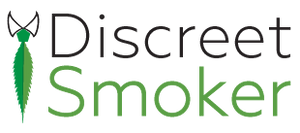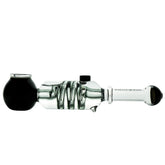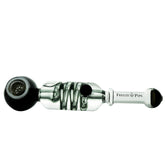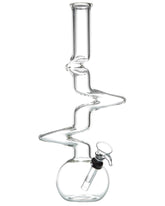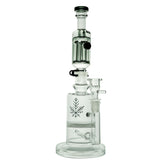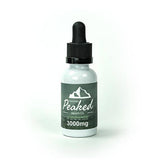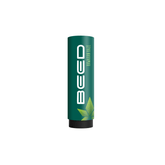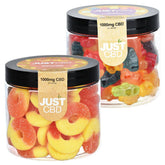-
Vendor:Naturally Peaked Health Co
3000MG Full Spectrum Organic CBD Tincture
Tincture 3000mg CBD Full Spectrum Like all of our products, we pride ourselves on the quality and value of our all-natural full-spectrum tinctures - they are truly second to none. As a base, we use a raw hemp extract which is sourced domestically in...- $139.99
- $139.99
- Unit price
- per
-
Vendor:CBDMD
Broad Spectrum CBD Oil Tincture Drops - Natural Flavor (750MG - 7500MG)
CBD Oil Tinctures provide the simplest, purest, and most versatile way to take your daily CBD. Made with Superior Broad Spectrum CBD formula infused in MCT oil, our CBD tinctures come in a wide range of concentrations without any THC. Sometimes, nothing beats the...- From $39.99
- From $39.99
- Unit price
- per
-
Vendor:Canna Drops
Canna Drops Broad Spectrum 1000mg CBD - Peppermint
Canna Drops Broad Spectrum 1000mg CBD - Peppermint Experience a new dimension of well-being with our Canna Drops Broad Spectrum 1000mg CBD tincture. Specially crafted for individuals seeking the full range of powerful cannabinoids without any THC. For best results, administer the desired amount...- $52.99
- $52.99
- Unit price
- per
-
Vendor:Canna Drops
Canna Drops Broad Spectrum 2000mg CBD - Peppermint
Canna Drops Broad Spectrum 2000mg CBD - Peppermint Seeking a potent, THC-free formula? Look no further than our Canna Drops Broad Spectrum 2000mg CBD tincture. With 2000mg of broad spectrum CBD per 1 oz/30mL bottle, you can trust in the power of 66mg CBD...- $82.45
- $82.45
- Unit price
- per
-
Vendor:Canna Drops
Canna Drops Full Spectrum 2000mg CBD Peppermint
Canna Drops Full Spectrum 2000mg CBD Peppermint Elevate your daily wellness routine with Canna Drops Full Spectrum 2000mg CBD Peppermint. Double the strength, yet smooth and versatile, this sublingual tincture offers the perfect blend of quality, efficacy, and convenience. For optimal results, drop the...- $79.99
- $79.99
- Unit price
- per
-
Vendor:Golden Goat
CBD Hemp Oil 1000MG - Peppermint
CBD Hemp Oil 1000MG - Peppermint CBD Hemp Oil 1000MG in a 1oz bottle with a refreshing peppermint flavor. This premium CBD oil is THC-free and offers multiple benefits to help you relax, manage pain, and live a happier, stress-free lifestyle. Each bottle contains...- $54.99
- $54.99
- Unit price
- per
-
Vendor:Golden Goat
CBD Hemp Oil 1500MG - Peppermint
CBD Hemp Oil, 1500MG, 1oz. Peppermint Flavor. NO THC. Get this premium CBD oil today and start relaxing, managing your pain, and living a happier, stress-free lifestyle. (30 servings per bottle, approx 50MG per serving.) INGREDIENTS: Hemp Seed Oil (Carrier) Cannabidiol (CBD) Lab Report...- From $64.99
- From $64.99
- Unit price
- per
-
Vendor:Green Genie
CBD Mixed Gummies 5000MG
CBD Mixed Gummies 5000MG Highly Potent Formula: Each gummy is carefully infused with the optimum amount of CBD for consistent effectiveness and maximum results. Natural Relief and Relaxation: Experience the natural benefits of CBD for a peaceful, restful sleep and overall well-being support. Enhanced...- $99.99
- $99.99
- Unit price
- per
-
Vendor:CBDMD
CBD Oil Tincture Drops Lemon Lime 1000MG CBD + 1000MG CBG
Our Broad Spectrum CBD + CBG Oil Tincture blends the best of both worlds! Our hemp extract formula with CBG (known as “the mother of all cannabinoids”) provides the perfect balance of CBD and CBG – which, when combined, may offer benefits such as...- $89.99
- $89.99
- Unit price
- per
-
Vendor:Golden Goat
CBD Platinum Gummies - Clear Bears 12000MG
Discover peak relaxation mode when you try our delicious CBD Gummies. Balance out your day or ease into your evening with each delicious CBD gummy bite. All Golden Goat products are rigorously tested by independent, third-party labs, ensuring we deliver only the best ingredients...- $129.99
- $129.99
- Unit price
- per
-
Vendor:Green Genie
CBD Soft Gel Capsules - Full Spectrum Vitamins 750MG
CBD Soft Gel Capsules - Full Spectrum Vitamins 750MG Relax and Rejuvenate: Discover stress relief with our CBD soft gel capsules, perfect for unwinding after a tough workout or a hectic day. Full Spectrum Formula: Each capsule contains a potent 25mg of full spectrum...- From $49.99
- From $49.99
- Unit price
- per
-
Vendor:Golden Goat
CBD+Sleep Capsules – Broad Spectrum – 750MG – 30ct
CBD+Sleep Capsules – Broad Spectrum – 750MG – 30ct Experience the convenience of CBD in capsule form with our Broad Spectrum CBD+Sleep Capsules. Each capsule delivers a full dose of hemp-derived cannabidiol, providing 25mg of pure CBD along with natural terpenes, sensoril extract, lavender...- $59.99
- $59.99
- Unit price
- per
-
Vendor:Golden Goat
Deep Sleep CBD & Melatonin Infused Gummies - 750MG
The renowned natural sleeping aid, melatonin, and the power of our Golden Goat's CBD and our hemp’s naturally occurring phytocannabinoids come together to support sound, quality sleep, and regular sleeping cycles in our CBD for Sleep Gummies. With a delicious flavor derived from naturally...- $29.99
- $29.99
- Unit price
- per
-
Vendor:Golden Goat
Deep Sleep CBD & Melatonin Infused Gummies - Blue Raspberry 3000MG
The renowned natural sleeping aid, melatonin, and the power of our Golden Goat's CBD and our hemp’s naturally occurring phytocannabinoids come together to support sound, quality sleep, and regular sleeping cycles in our CBD for Sleep Gummies. With a delicious flavor derived from naturally...- $44.99
- $44.99
- Unit price
- per
-
Vendor:Green Gene
Extra Strength Full Spectrum Kosher CBD Oil (250MG - 9000MG)
Extra Strength Full Spectrum Kosher CBD Oil (250MG - 9000MG) Discover the highly potent MCT CBD oil, now available in a range of MGs from 250MG to 9000MG. Our premium CBD oil allows you to relax, manage pain, and embrace a happier, stress-free lifestyle...- From $34.99
- From $34.99
- Unit price
- per
-
Vendor:Golden Goat
Golden Goat Platinum CBD Gummies 1500mg - Peach Rings
Golden Goat Platinum CBD Gummies 1500mg - Peach Rings Indulge in the ultimate relaxation experience with Golden Goat Platinum CBD Gummies 1500mg - Peach Rings. Each delectable gummy offers a perfect balance for your day or evening, delivering a delightful taste similar to popular...- $59.99
- $59.99
- Unit price
- per
-
Vendor:Smoke Drop
Green Genie CBD Vegan Pectin Infused Gummies w/ B12 Vitamins (625MG - 2500MG)
Green Genie CBD Vegan Pectin Infused Gummies w/ B12 Vitamins (625MG - 2500MG) Indulge in the delicious fruity flavors of Green Genie CBD Vegan Pectin Infused Gummies with added B12 Vitamins. These gummies offer a delightful alternative for those seeking a vegan-friendly CBD option...- From $49.99
- From $49.99
- Unit price
- per
-
Vendor:Green Genie
Green Genie Organic CBD Infused Mood Based Vegan Gummies - (625MG - 2500MG)
Green Genie Organic CBD Infused Mood Based Vegan Gummies - (625MG - 2500MG) Indulge in the vibrant world of relaxation with our Mood Based Vegan CBD Gummies! Crafted to elevate your mood and melt away stress, these gummies are your perfect companion for any...- From $49.99
- From $49.99
- Unit price
- per
-
Vendor:BEED
Hawaiian Haze CBD Capsules (8-Pack)
Experience the complex, fruity notes of our Hawaiian Haze CBD Capsules, offering a smooth and relaxed ride. Whether it's a daytime social gathering or an evening unwind, these capsules bring an uplifting and calming effect, perfect for both leisure and athletic activities. Uplifting and...- $29.99
- $29.99
- Unit price
- per
-
Vendor:JUST CBD
JUST CBD Gummies | 1000mg
JUST CBD Gummies | 1000mg Unwind and experience pure relaxation with our Just CBD Gummies, each containing 1000mg of premium CBD. Whether you're winding down after a long day or simply seeking a soothing vibe, our sweet and tasty flavors will transport you to...- $49.99
- $49.99
- Unit price
- per
SIGN UP FOR OUR NEWSLETTER
Receive our latest updates about our products & promotions.
